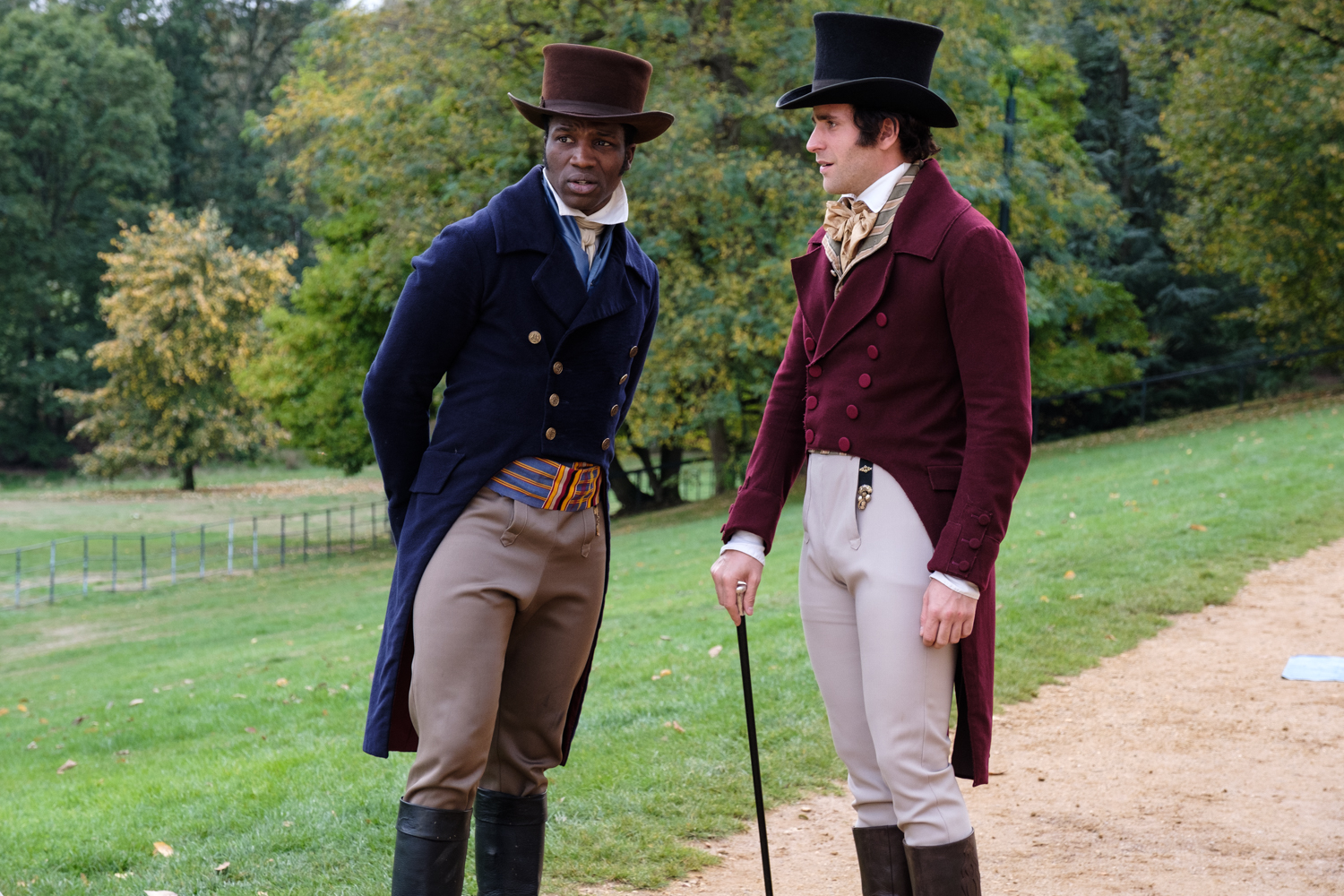Everyone knows that if someone makes a slanderous public statement about you, you must repay the favour and demand vengeance. When it comes to establishing one’s social reputation and obtaining profitable (and loveless) marriages, public appearances were crucial in the era of Twitter, Instagram, and the Metaverse, as well as two centuries ago. Mr Malcolm’s List, a new period piece that follows in the footsteps of Bridgerton, is all about balancing the pursuit of love with the pursuit of social mobility. While Dangerous Liaisons (1988) and subsequent television dramas like Belgravia and The Gilded Age are more serious and dark, this historical film is more lighthearted and amusing. It’s an excellent comedic satire that goes quickly and decisively, making it one of the finest of the year. In any genre, it’s difficult to achieve a lighthearted experience.
Bridgerton meets Pretty Woman
From their youth (in a brief beginning scene) until their early adulthood, Julia Thistlewaite (Zawe Ashton) and Selina Dalton (Freida Pinto) have a close connection in Suzanne Allain’s 2009 novel Mr Malcolm’s List, for which she also created the screenplay. On the verge of giving up hope, Julia sets her eyes on Jeremiah Malcolm (PO Dwrsù), London’s most eligible bachelor, who has a list of conditions that no woman has been able to meet. Julia sets out on a plan to have Mr Malcolm fall in love with his perfect lady, who would then publicly reject him, after an unpleasant date that leaves him underwhelmed and her socially ashamed. A woman could never meet all of Mr Malcolm’s requirements; thus, Julia decides to make one of her own.
Selina is persuaded by Julia’s snobbish relative Lord Cassidy (Oliver Jackson-Cohen) to join the upper class and win Mr Malcolm’s affections. Selina transforms from poverty to riches in whirlwind makeovers reminiscent of My Fair Lady and Pretty Woman, drawing the attention of both Mr Malcolm and his handsome companion, Captain Henry Ossory (Theo James). Secret schemes are conceived, alliances are formed, and identities are uncovered in a series of misadventures. In the third act, everyone is thrown together at a masquerade event. Mr Malcolm’s List doesn’t radically re-work this concept as much as it executes it so effectively. To say more would be to spoil the surprise.
A firm grip
Emma Holly Jones, who is directing her feature picture debut and has already established a distinct aesthetic, has a lot to do with that. Mr Malcolm’s List tells a traditional narrative conventionally, but Jones ensures that it doesn’t feel like drudgery at any point. Instead of focusing on apparent story aspects, she takes the time to develop her characters and make them become real individuals, rather than just puppets. With a stellar ensemble, especially in the supporting roles, she’s able to carry the film. Drsù and Pinto, the two love stars in the film, are charming yet not too out of place. To put it simply, Selina has all of the qualities of every Jane Austen heroine wrapped together in one character. Even if the performers can’t do much more than simmer or pout, it’s OK because they’re not the major attraction of the film.
This year’s top performers
Ashton excels in her role as the conceited and naive Julia, and her performance stands out among the talented ensemble. Ashton’s nasty performance makes what could have been a standard villain part the most likeable and sympathetic character in the whole film. The naughty but sweet Julia is always fascinating, and you frequently wish she had more screen time to hear her sharp putdowns. Jackson-Cohen is the perfect foil for her as the dim-witted and overly concerned Lord Cassidy. As a flyby Pygmalion, Jackson-Cohen has a lot of fun in this picture, far from the melancholy plotlines of The Haunting of Hill House and The Haunting of Bly Manor for which he is most known.
As a comedic actor, Jackson-Cohen has a gift for mimicking David Niven and Alec Guinness’ fops and weak-kneed cads in British comedies of the 1950s. Several more performers stand out. Captain Ossory, played by Theo James, has a knowing smirk on his face as if he’s aware of how good-looking he is but still can’t believe it. Just by raising an accusatory eyebrow, Doa Croll effectively establishes her power over her son and society as Mr Malcolm’s fearsome mother. A commanding performance in the finest meaning of the term, but one that never comes off as conceited.
The whole shebang
After Jane Austen’s humorous reign, Mr Malcolm’s List takes the throne thanks to quick directing and a cast committed to the script’s biting satire. In its place, this could have been a dull and uninteresting frolic around the mansions and gardens of Regency England.
The comparison to Emma, P&P, or even Bridgerton is OK by me. In the crowded sub-genre of historical films and television series documenting the constantly ludicrous game of love and social position, this film manages to distinguish out. Mr Malcolm’s List is now showing in a few cinemas around the country.

